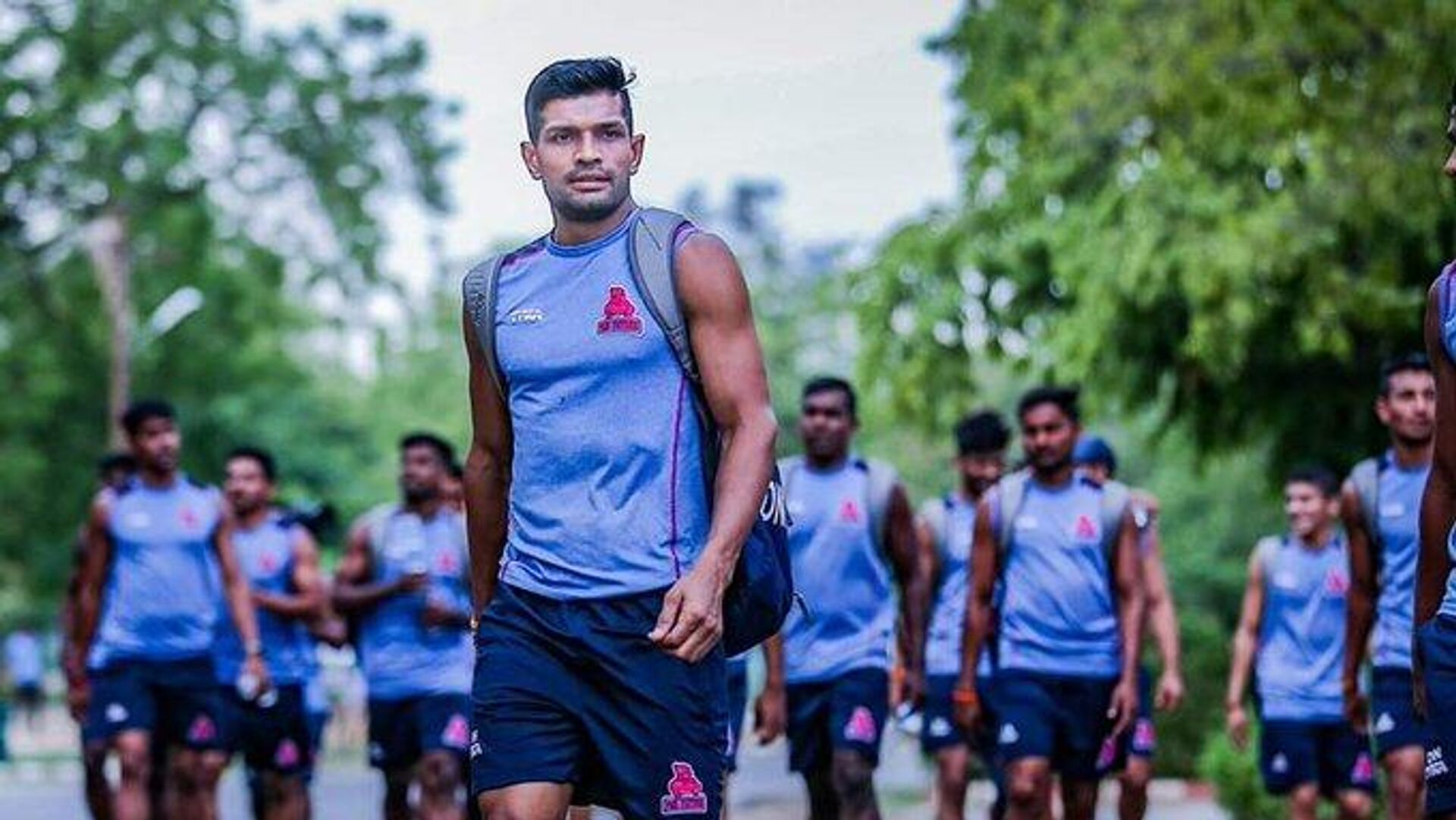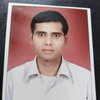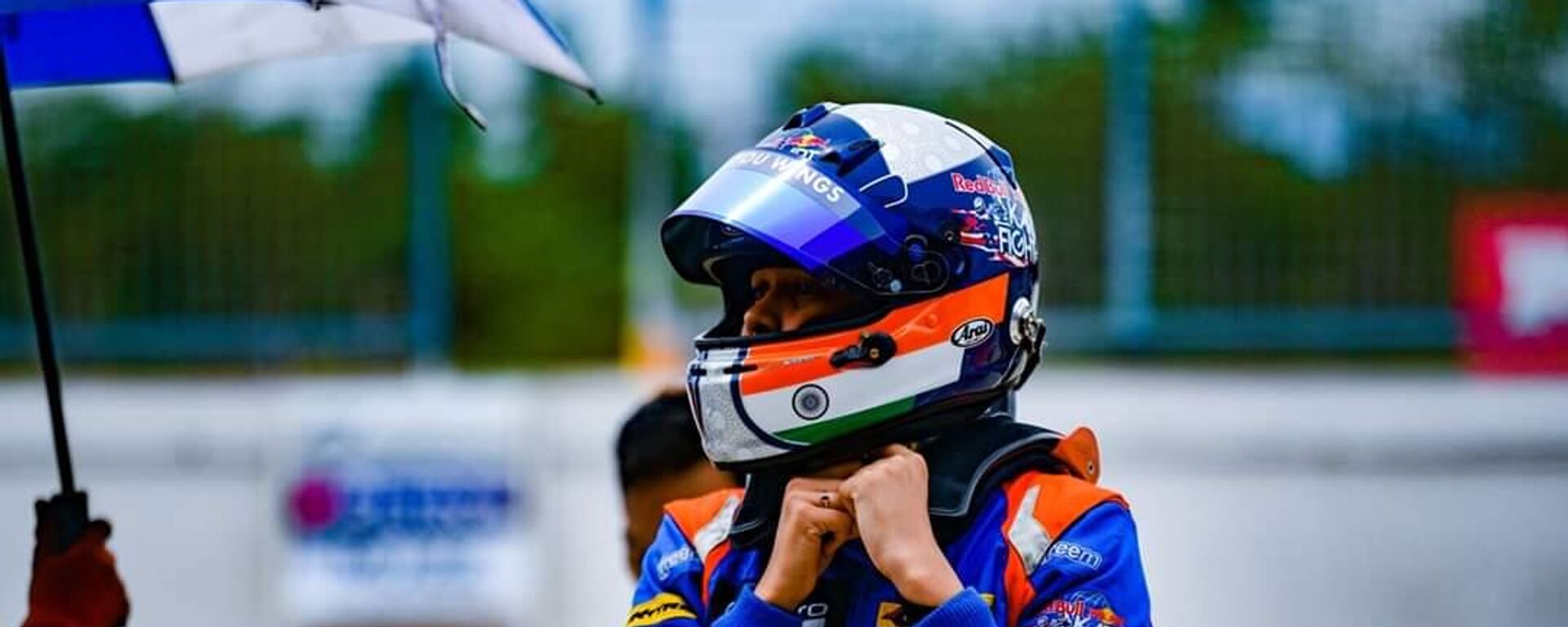Meet Indian Kabaddi Captain Who Lost His Mother at 4 And Was Too Poor to Afford Two Square Meals
11:22 GMT 24.10.2022 (Updated: 11:45 GMT 10.12.2022)

© Photo : Twitter/@DeepakHooda5555
Subscribe
Exclusive
Kabaddi, the Indian contact team sport played between two teams, is today an integral part of elite sporting competitions such as the Asian Games and the South Asian Games since 1990 and 1984 respectively. The game is played by two teams of seven players each.
Widely regarded as one of the finest all-rounders in Kabaddi, Deepak Ram Niwas Hooda is the captain of India's national Kabaddi team and widely respected in sporting circles for being a 2016 World Cup winner.
Earlier this month, he won a silver medal in the National Games in Ahmedabad in Gujarat and is at present plying his trade with the Bengal Warriors in the Pro Kabaddi League, India's top franchise-based tournament.
In an interview with Sputnik, Hooda poured his heart out about his early struggles - particularly losing his mother in childhood - his dream to win gold in next year's Asian Games in China, why a former cricket captain is his favorite sports star and more.
Sputnik: You lost your parents at an early age and had to struggle hard to get even basic amenities. Could you tell us about the struggles you underwent in early life?
Deepak Ram Niwas Hooda: I lost my mother when I was four years old in 1998, and my father died when I was studying in the 12th grade in 2013, forcing me to leave my education. As I didn't have money to continue studies, I started playing Kabaddi. One doesn't need much money to play it.
As well as playing Kabaddi, I started teaching in a local private school in Rohtak city to earn money. I used to wake up at three in the morning and practice until 7.
After that, I would head to school where I was employed before returning home at 3 in the afternoon. In the evening, I would practice again from around 4.30 to 8. For almost two years, I practiced under street lights - even at night.
But my Kabaddi career was yet to blossom as I hadn't yet met my first coach Jagmal Singh. He lived in a village 30 kilometers from where I was. To practice under him, I borrowed ₹10,000 ($121) from a friend and bought an old motorbike. At the time, I used to return home at around 10 at night from my practice.
Eventually, I got to play in a senior national tournament where Janardan Singh Gehlot, founder president of the International Kabaddi Federation, noticed my talent. He told me that because I was the best player in the tournament, I was being included in the list of possible contenders for the Indian team in the Asian Games.
From there my career took a massive leap. And when the Pro Kabaddi League (PKL) was first introduced in India in 2014, I became the second most expensive player in the auction with the Telugu Titans making a bid of ₹12.6Mln ($15,250).
From then on, I never looked back. I became India captain and all my family struggles also came to an end. Today, when I think of it I feel nice to have achieved something in my life.
Sputnik: You have been a part of a World Cup-winning team, and also won a bronze in the Asian Games in 2018. How would you rate your journey with the national team?
Deepak: My journey with the Indian team has been great. I debuted for the national team in 2016 at the South Asian Games when we won gold. Thereafter, I participated in the World Cup in the same year, winning the tournament.
We won a few more gold medals in other tournaments but lost in the semifinals to Iran in 2018. It was perhaps the biggest disappointment of my career. However, I am pretty confident that we will reclaim our Asian Games gold medal next year in China because it is a matter of India's pride.
We are not focusing on Iran because we realize that almost all the teams, including Pakistan, Sri Lanka, South Korea, and Bangladesh, have improved by leaps and bounds. We need to keep an eye on all our opponents.
Deepak: My journey with the Indian team has been great. I debuted for the national team in 2016 at the South Asian Games when we won gold. Thereafter, I participated in the World Cup in the same year, winning the tournament.
We won a few more gold medals in other tournaments but lost in the semifinals to Iran in 2018. It was perhaps the biggest disappointment of my career. However, I am pretty confident that we will reclaim our Asian Games gold medal next year in China because it is a matter of India's pride.
We are not focusing on Iran because we realize that almost all the teams, including Pakistan, Sri Lanka, South Korea, and Bangladesh, have improved by leaps and bounds. We need to keep an eye on all our opponents.
But we are confident about getting back our gold medal at the Asian Games in 2023.
Sputnik: With Pro Kabaddi League (PKL) gaining immense popularity in the hinterlands of India, how do you see the future of Kabaddi evolving in the nation?
Deepak: The credit for Kabaddi's current popularity in India should be given to the Pro Kabaddi League. It is because of this tournament which started in 2014 that people now follow and enjoy this sport in every nook and cranny of the country.
Also, it has given Kabaddi players, most of whom come from lower middle-class families, both name and fame. In addition to that, PKL has improved the financial condition of players to a great extent. It is PKL's impact that Kabaddi is now the second most followed sport in India after cricket.
Deepak: The credit for Kabaddi's current popularity in India should be given to the Pro Kabaddi League. It is because of this tournament which started in 2014 that people now follow and enjoy this sport in every nook and cranny of the country.
Also, it has given Kabaddi players, most of whom come from lower middle-class families, both name and fame. In addition to that, PKL has improved the financial condition of players to a great extent. It is PKL's impact that Kabaddi is now the second most followed sport in India after cricket.
Sputnik: Although you have been a veteran in PKL, you have yet to win the competition. What has stopped you so far?
Deepak: I have featured in four semifinals in the PKL but haven't made it to the final and that's why my PKL trophy cabinet is still empty.
Kabaddi is a team game, and you can't win titles based on a single player's efforts. In fact, every member of the team needs to be at his best to win the title.
All four semifinals that we lost were close encounters. Sometimes we lost by 2 points, sometimes by 4 points, so the margin of defeats wasn't that big. Luck also plays a part in such games, and somehow fortune hasn't been on my side in this competition.
I have been a part of the PKL since its inception and though I haven't won the title in eight attempts, I am sure I will be able to lift the trophy once before retirement.
Deepak: I have featured in four semifinals in the PKL but haven't made it to the final and that's why my PKL trophy cabinet is still empty.
Kabaddi is a team game, and you can't win titles based on a single player's efforts. In fact, every member of the team needs to be at his best to win the title.
All four semifinals that we lost were close encounters. Sometimes we lost by 2 points, sometimes by 4 points, so the margin of defeats wasn't that big. Luck also plays a part in such games, and somehow fortune hasn't been on my side in this competition.
I have been a part of the PKL since its inception and though I haven't won the title in eight attempts, I am sure I will be able to lift the trophy once before retirement.
Sputnik: Are there other sports stars outside Kabaddi that have inspired you?
Deepak: Both Mahendra Singh Dhoni, India's former cricket captain, and Cristiano Ronaldo have inspired me. I have always followed these two men, particularly Dhoni because he belonged to a small city and went on to captain the Indian cricket team. His ability to absorb pressure in tense situations during matches is something I have tried to imbibe in my game.
Deepak: Both Mahendra Singh Dhoni, India's former cricket captain, and Cristiano Ronaldo have inspired me. I have always followed these two men, particularly Dhoni because he belonged to a small city and went on to captain the Indian cricket team. His ability to absorb pressure in tense situations during matches is something I have tried to imbibe in my game.


